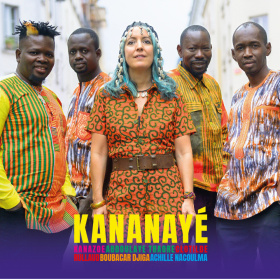How to earn money as a music producer in South Africa
Over the past 20 years, the digital revolution has triggered seismic changes within the music industry, and the rate of evolution shows no signs of slowing down. Understanding the environment, context and direction in which the business is moving – while at the same time developing your skill set, versatility and technical know-how – is key to long-term survival and growth in the recording industry.
This article looks at the current trends within the industry and suggests some tips on how to maximise revenue from music production in South Africa.
Music production in South Africa
Music production is a complicated and diverse role, defined by Berklee Online as “the process by which music is created, captured, manipulated and preserved so that it can be distributed and enjoyed.”[1] Music production involves the melding of the technical and the creative; it requires producers to work alongside both recording engineers and artists, in order to provide a holistic perspective on the musical project. It is the producer that can look beyond the purely creative process of making music towards finding its best route to market.
In South Africa, music production is formally included in the event, technical and production services (ETPS) sector. This is a primary support sector to the creative and cultural industries, which in 2018 contributed R75.3 billion to the country’s GDP and employed 1.3 million people.[2] The ETPS includes more than 40 different types of occupations that service all kinds of venues from theatres to cinemas, film studios, clubs and music festivals. Included in this economic sector are both ‘backstage’ skills (lighting, sound, staging, etc.) and ‘release’ skills (design, technological innovation, business management and financial literacy). Broad-based Black Economic Empowerment (BBBEE) sector codes are currently being introduced in the ETPS, which will assist in long-term skills development and vertical integration opportunities for small businesses.[3]
Estimated earnings from music production in South Africa will depend on a number of factors:
- The budget of the recording. Is this an independent production or a major label release?
- The payment structure. What are the specific terms of the recording deal in place? Sometimes, a producer may elect to receive a smaller upfront fee in exchange for a greater producer royalty on expected (future) revenue.
- Generally speaking, producers in South Africa get paid between R40 000 and R195 000 per production.[4] According to Music In Africa’s Revenue Streams for Music Creators in South Africa 2022 report, this equates to an average monthly earning of R8 688 for music producers in South Africa.
Tips from within the industry
Black Major is a boutique record label that has successfully produced a number of South African artists – including DJ Lag, Manthe Ribane and Sibot – according to their unique strengths and abilities. For founding director Sevi Spanoudi, a music producer’s decisions should be driven by what “makes financial sense for the growth of the artist.”[5]
Spanoudi says it is important for producers to ask themselves the following questions when deciding to work with a musical artist:[6]
- What is achievable?
- What is the personality of the musician being recorded?
- Who is going to listen to this music on the radio?
- How is it going to be placed in the market?
- Will it be authentic and believable to audiences?
Meanwhile, South African Music Award-winning musician Crighton Goodwill offers some interesting insights about how to approach the streaming market from a producer’s point of view.
“To be in this industry, you have to be versatile,” he says. “If you're just an engineer, it’s so tough because if all you do is engineer, there’s not a lot of studios left for that to happen. When young engineers approach me, the first thing I ask is, ‘Can you play keyboards? Can you produce beats? Or can you do something more than just record?’”[7]
Approached by prolific London-based South African producer Pete Martin, they began creating lo-fi music in the genres of beatstrumentals and bedtime beats. Lo-fi music has grown globally over the past five years and is still a burgeoning sector, with many people using it as a study aid, or as simple background music that can be played for up to 24 hours a day.[8]
Crighton’s beats are currently being provided to Platoon, a subsidiary of Apple. His first 10 tracks are already earning him nearly £1 000 (about R20 000) per month. He is now busy with the next 20 tracks and his vision is to set up multiple profiles and work towards a catalogue of 150 tracks and £10 000 of passive income.[9] The deal Platoon offers is a 75/25 split on mechanical payments in its favour, with the company also handling all aspects of the submission process, including artwork for the tracks, tracking, backend management, a comprehensive reporting system, and a tool kit for release strategies.[10]
The key takeaway for producers from Crighton’s story is that success depends on getting exposure to the curators of playlists on streaming giants such as Apple Music or Spotify. “That's what it's all about,” he says. “You can have as amazing music as you want, but if you just don't have that way to connect with the right exposure in the streaming world, I don't know how you would transcend.”[11]
Profitable genres in South Africa
As we have seen, a key decision for producers concerns which genre of music to create. Here, the Revenue Streams for Music Creators in South Africa 2022 report can prove highly instructive. This report used five broad genre classifications in its study: Urban/Pop, Religious, Classical, Ethno/Traditional and Jazz.
In terms of market size, the Urban/Pop genre has clear dominance when it comes to general popularity:
- Urban/Pop: 63%
- Religious: 17%
- Ethno/Traditional: 10%
- Jazz: 7%
- Classical: 2%
Despite the overwhelming market dominance of Urban/Pop, the picture looks quite different when considering average monthly income:
- Ethno/Traditional: R25 638
- Religious: R20 480
- Classical: R18 827
- Jazz: R18 759
- Urban/Pop: R8 119
The lesson for producers is to strike a balance between making music for the market and finding ways to tap into more profitable genres, or genres where there is appetite for new music but less competition for revenue share.
The way forward for young South African producers
According to Eugene Mthethwa, who is an inhouse producer at Gallo Records, Lucky Dube's keyboard player and founding member of Trompies, South African musicians will only truly benefit from the incredible potential of the African music market when an “alternative industry” is established, resulting in “Africa owning its own digital distribution platforms that will set their own prices and terms of engagement.”[12]
However, there are signs that something of this nature may already be developing in South Africa. Thanks, in part, to the ANC government’s emphasis on sustainable growth, since 1994, much of the independent music industry in South Africa has become black-owned.[13] The pioneers in this field have all taken control and ownership of their rights, successfully building their own teams around the three core layers of music administration: the record label, the publisher and the booking agent. Business affairs director at Nisaonline, Dr Graeme Gilfillan, explains this approach as follows: “Don’t pay me, pay my company.”[14]
These sentiments are echoed by Nosisi Ngakane, operations manager at AMPD Studios, a company focused empowering young people looking to enter the creative industry with as much business knowledge as possible. She explains: “We want to demystify the industry and democratise access to information by making it easily accessible through our online platforms. I am also very interested in ensuring that creative people of colour get involved in these types of activities because we are typically left out of these conversations due to a lack of information and a lack of capital.”[15]
The recorded music industry continues to evolve at a rapid pace, with many changes only being accelerated by the COVID-19 pandemic and its disruptions to the live performance sector. In order to thrive in this shifting industry, music producers require relevant market knowledge, up-to-date technical skills and sound business acumen to take advantage of the opportunities presented by the current landscape.
Video caption: In this video from AMPD Studios, Yvonne Chaka-Chaka and Zolani Mahola discuss the importance of authenticity in the music business.
Resources and citations
- [1] Berklee Online. (2017). “Music Production: What Does a Music Producer Do?”. Accessed on January 4, 2022: https://online.berklee.edu/takenote/music-production-what-does-a-music-producer-do/
- [2] South African Cultural Observatory. (2018). Mapping Study - Performance and Celebration. Accessed on January 4, 2022: https://www.southafricanculturalobservatory.org.za/download/734
- [3] Douglas, S. (2021). “Moves to address transformation in event technical production services sector”. Business Day. Accessed on January 4, 2022: https://www.businesslive.co.za/bd/opinion/2021-11-01-struan-douglas-moves-to-address-transformation-in-event-technical-production-services-sector/
- [4] Chinedu, S. (2022). “How To Become A Top South African Artist Through The Best Record Labels”. Siwes Beginner. Accessed on January 12, 2022: https://siwesbeginner.com/south-africa-record-labels-contact/
- [5] Original interview for Music in Africa with Sevi Spanoudi, Founding Director of Black Major: November 10, 2021.
- [6] Ibid.
- [7] Original interview for Music in Africa with Crighton Goodwill, SAMA-winning Musician and Sound Engineer: November 12, 2021.
- [8] James, M. (2021). “What is Lo-Fi Music? With 9 Top Examples & History”. Music Industry How To. Accessed on January 4, 2022: https://www.musicindustryhowto.com/what-is-lo-fi-music/
- [9] Interview with Crighton Goodwill. Ibid.
- [10] Platoon. (2022). “The Handbook”. Accessed on January 4, 2022: https://platoon.ai/handbook
- [11] Interview with Crighton Goodwill. Ibid.
- [12] Noto, S. (2022). “Trompies member Eugene Mthethwa's open letter to SAMRO - 'We have to die before we enjoy the fruit of our labour’”. Drum. Accessed on January 22, 2022: https://www.news24.com/drum/celebs/news/trompies-member-eugene-mthethwas-open-letter-to-samro-we-have-to-die-before-we-enjoy-the-fruit-of-our-labour-20220107
- [13] Cultural Industries Growth Strategy. (1998). SA Music Industry Report. Accessed on 4 January, 2022: https://www.gov.za/sites/default/files/gcis_document/201409/musicreport0.pdf
- [14] Gilfillan, G. (2017). Corporatisation - The First Level. Nisa Online. Accessed on January 4, 2022: http://nisaonline.com/wp-content/Documents/Corporatization-Handbook-as-of-28-Jun-2017-Master.pdf
- [15] Original interview for Music In Africa with Nosisi Ngakane, Operations Manager at AMPD Studios: November 15, 2022.
This article is part of the Revenue Streams for African Musicians project, supported by UNESCO’s International Fund for Cultural Diversity in the framework of the UNESCO 2005 Convention on the Protection and Promotion of the Diversity of Cultural Expressions, the Siemens Cents4Sense programme, Siemens Stiftung, Goethe-Institut, the National Arts Council of South Africa and Kaya FM.
Editing by David Cornwell and Kalin Pashaliev






























Commentaires
s'identifier or register to post comments